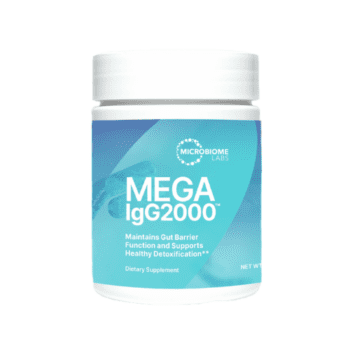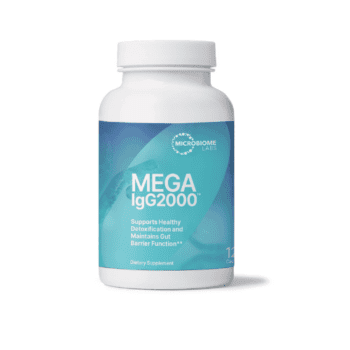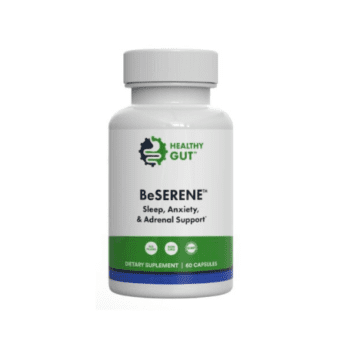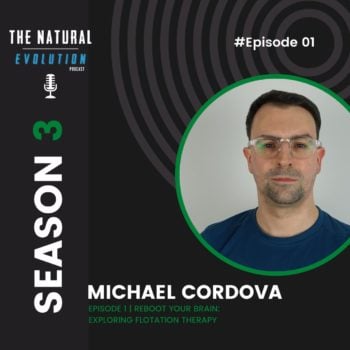
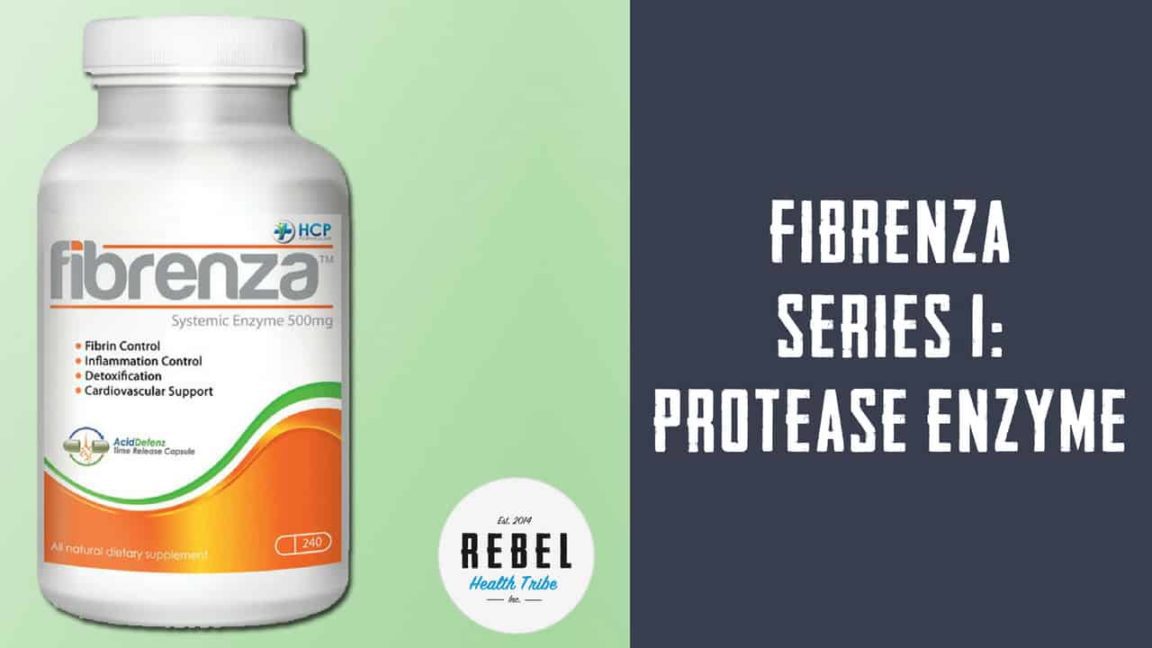
More Posts from
Foundations & Optimization

Genetics and Hormone Production, Transport, Utilization, and Metabolism
Our genetics play a larger role in our hormones than most people

Genetics & Neurotransmitters: Impact on Your Mood, Energy, Hormones, and More!
Have you wondered why an antidepressant didn’t work for you? Have you

Genetics and Detoxification: Your genes are key to knowing what detox protocol will best suit your body.
https://vimeo.com/821487331 If you’ve ever bought a detox kit off a shelf

RHT Health Foundations &
Optimization Guide
Our Top Recommendations in One Simple Guide -
Your Starting Point for Optimal Health!
- 12+ years of research and experience distilled down into one simple guide
- Easy, practical, and actionable steps you can take right away
- The most-repeated recommendations from our 100+ guest experts over the years
- Something for everyone - regardless of where you are on your health journey
Michael:
Hey everyone. Welcome to another Rebel Health Tribe interview where we are going to talk about enzymes – protease first. We are joined by microbiologist Kiran . Kiran, how’s it going?
Kiran :
Great. How are you guys?
Michael:
Awesome. I feel like we do this all the time, probably because we do this all the time. Today some of you might know Kiran as our guest expert on the microbiome series, which is awesome. If you haven’t watched that, I would highly recommend checking out those webinars. They’re available in the free member area in My Dashboard area if you’re going to go look for that, but all the replays are there. It’s like 15 hours now of crazy microbiome information. Today though we’re going to talk about a little bit different of a subject. That is proteolytic or systemic enzymes. Can you explain what that means a little bit?
What is proteolytic or systemic enzymes?
Kiran:
Yeah, so the word proteolytic means that it breaks down proteins in a variety of ways. Every proteolytic enzyme has a different target within the protein structure itself, and so it creates a different product once it cuts up the protein. Systemic enzyme is one that has the capability of being absorbed into the body and then perform functions throughout the body. Digestive enzymes, for example, work primarily in the digestive tract and don’t really do a whole lot in the rest of the body. Systemic enzymes do somehow get through.
There’s some overlap; there’s some digestive enzymes that seem to have systemic effect as well, so we’ll talk a little bit about each of those.
Michael:
What would determine if they have an effect as a digestive enzyme or as a systemic? Would you take it with or without food?
Kiran:
If it’s known systemic enzyme then you want to take it without food to encourage the absorption because if there’s any food present in the gut then the enzyme will start going to work to actually break down the food itself, but if it’s a digestive enzyme, obviously you want to take it with food. The ones that double as both systemic and proteolytic, like Pancreatin for example, if you have pancreatic insufficiency, you might need to take it with food and a dose without food as well, so you have both the benefits.
Michael:
That makes sense. I’m going to go down a list of commonly used proteolytic or systemic enzymes and other ingredients you might find in a product that contains proteolytic and systemic enzymes, and we can just go through each one. Some will just be short. Some a little bit more info on what they do, what the functions are, why someone might want to take it or what the benefit might be, and if there’s any specific they’d want to look for regarding that specific enzyme.
First off, we have protease. This is one that you’ll likely see in digestive or systemic enzymes, correct?
Kiran:
Yeah, and if it just says protease or acid stable protease, that means it’s kind of a generic protein-digesting enzyme. It more than likely will be more beneficial for breaking down food because most of the well-known systemic enzymes have been branded or have names that are more specific to what they do in the body, so protease just means an enzyme that breaks down proteins. Having a variety of proteases in important, so people need to understand that protease doesn’t mean it breaks down protein in the same spot, so every protease enzyme has a different place within the amino chain that it actually cuts the amino acid, and so in many cases, you need a series of protease enzymes to break down a full big piece of protein into its original amino acids that you need to then absorb and utilize.
First, you need a protease that cuts it into bigger pieces, then you need another protease that cuts those bigger pieces into little, little pieces, and finally, the peptidases break it down into tiny peptides and release the amino acids.
Michael:
That makes sense, so protease is more of a general term of an enzyme that breaks down protein versus a specific enzyme.
Kiran:
Exactly. Protease is just an all-encompassing term. Most of the systemic enzymes we’ll talk about fall under the category of protease, so just the word protease just means a protein-digesting enzyme.
Michael:
Perfect. Thank you.
RHT Health Foundations &
Optimization Guide
Our Top Recommendations in One Simple Guide -
Your Starting Point for Optimal Health!
- 12+ years of research and experience distilled down into one simple guide
- Easy, practical, and actionable steps you can take right away
- The most-repeated recommendations from our 100+ guest experts over the years
- Something for everyone - regardless of where you are on your health journey

Foundations & Optimization Products
-
$49.00
-
$59.99
-
$49.00
Get Social
Recent Podcasts
Recent Courses
Toxicity & Detoxification Masterclass 2024
The toxicity and Detoxification Masterclass covers a wide array of topics with the following guests:
Brain & Nervous System Masterclass 2024
19 Leading Experts Share Cutting-Edge Science, Effective Practices, and Clinical Strategies to Optimize Brain & Nervous System Health in Kids and Adults
Autoimmune Masterclass 2024
Autoimmune Masterclass brings together 17 of the world’s leading doctors, researchers, and experts on autoimmune diseases who each present their own mini-class on autoimmunity.
Toxicity & Detoxification Masterclass
The toxicity and Detoxification Masterclass covers a wide array of topics with the following guests: 1. Lara Adler, Environmental Toxins Educator 2. Andrea Nakayama, Functional Medicine Nutritionist 3. Maya Shetreat, MD 4. Jill Carnahan, MD 5. Jaclyn Downs, Functional NutriGenomics 6. Dr. Jared Seigler 7. Eric Gordon, MD 8. Jennifer Fugo, MS, CNS 9. Dr. […]
This content is only available to members.
Get the RHT Newsletter
Be the first to get access to special offers, new podcasts, courses, products and events from Rebel Health Tribe.
MegaSporeBiotic™
MegaSporeBiotic is a probiotic blend of 5 Bacillus spores that have been shown to maintain healthy gut barrier and immune function.
Facebook
Twitter
Pinterest
LinkedIn
Reddit
WhatsApp
Telegram
StumbleUpon
Taylor Oliver, MS, RD, LD
Taylor Oliver is a registered and licensed dietitian specializing in oncology and critical care, currently practicing in Oklahoma City, Oklahoma. She also has a Master’s in Holistic Nutrition. Writing, researching and traveling are a few of her favorite interests. She is passionate about food and loves trying new restaurants and recipes.
View All Author Posts




